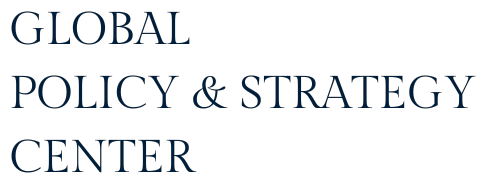In this week’s analysis, we delve into key geopolitical events shaping regional and international affairs, illuminating the intricate dynamics of power, diplomacy, and security.
From China’s assertive diplomatic maneuvers in the Middle East to the burgeoning alliance between Iran and North Korea, each development underscores the evolving contours of global geopolitics. Meanwhile, in the heart of the Middle East, the elusive quest for peace in Gaza remains elusive, casting a shadow of uncertainty over the region’s stability. Europe’s perennial struggle with immigration management and the United States’ repatriation efforts from Syria further punctuate the complex tapestry of challenges confronting the international community.
As we navigate these developments, a nuanced understanding of geopolitical shifts is imperative to deciphering the ever-changing landscape of international relations.
Uncertainty Looms Over Gaza Ceasefire
Tensions between Israel and Hamas have escalated, with both sides exchanging rocket fire and airstrikes. The situation remains volatile, with the potential for further escalation and regional instability.1 Meanwhile, the U.S. has pledged $1 billion in ammunition and aid to Israel, despite threats from Hamas against the Rafah crossing.
Despite initial optimism following reports of a ceasefire deal acceptance by Hamas, uncertainty clouds the prospects for peace in Gaza. Israel’s rejection of the purported deal, citing lack of involvement in its negotiation, highlights the complexities of achieving lasting peace in the region. The volatile situation underscores the challenges of mediating between conflicting parties and underscores the fragility of ceasefire agreements in the absence of consensus among key stakeholders.
China’s Expanding Diplomatic Footprint in the Middle East
China’s recent efforts to mediate between Hamas and Fatah, key players in the Palestinian Authority (PA), signal Beijing’s growing ambition to wield influence in the Middle East’s political arena. This move underscores China’s desire to broaden its diplomatic footprint in the region, positioning itself as a significant player in Middle Eastern affairs. By engaging in the delicate task of reconciling rival Palestinian factions, China aims to bolster its role as a mediator and stakeholder in the quest for peace and stability in the region.
Iran and North Korea Forge Deeper Ties
The burgeoning strategic partnership between Iran and North Korea marks a significant development in the geopolitical landscape, as both countries seek to counteract U.S.-led sanctions and containment efforts. This alliance underscores their shared objectives and mutual interests in confronting perceived external threats. By deepening their cooperation, Iran and North Korea aim to enhance their resilience against international pressure and assert their respective geopolitical agendas on the global stage.
Europe’s Struggle with Immigration Management Persists
Europe’s long-awaited adoption of the New Pact on Migration and Asylum has failed to quell internal divisions among member states regarding immigration policy. Despite initial hopes for a unified approach, continued discord underscores the persistent challenges facing Europe in managing immigration flows and addressing asylum issues. The muted reception to the pact highlights the deep-seated differences among EU member states and underscores the uphill battle in reaching consensus on this contentious issue.
Meanwhile, as economic and security issues become increasingly intertwined, there is growing discussion about NATO’s potential role in economic security. A new analysis explores the prospect of NATO expanding its focus beyond traditional defense to address economic threats and challenges.
Russia’s Defense Leadership Shake-Up
In a significant move, Russian President Vladimir Putin has appointed an economist to head the country’s Defense Ministry. This decision comes amid Russia’s ongoing military campaign in Ukraine and could signal a shift in strategy or priorities.
China’s Growing Influence in the Pacific
The Solomon Islands has elected a pro-China prime minister, further solidifying China’s influence in the region. This development raises concerns about Beijing’s expanding footprint in the Pacific and its potential implications for regional security dynamics.
